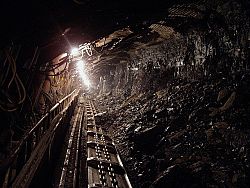

Back in October, Cumbria County Council granted planning permission for West Cumbria Mining to open a new coking coal mine in Whitehaven, amid much controversy. Given the Government's recent climate pledges and promises, many raised concerns about a new coal mine in England and the potential environmental implications of such.
Importantly, it provides a conflicting image - a country planning on dramatic cuts in carbon emissions whilst providing a fuel proven to significantly contribute to such emissions. As a result, at the beginning of February Councillors in Cumbria agreed to reconsider the planning application. This was partly due to the fact that the permission granted was to allow the extraction of coking coal until 2049, whilst the Climate Change Committee (CCC) recommended only in December that the use of coking coal should be curbed by 2035.
The decision has caused arguments amongst industry, environmental groups and MPs alike. Now it is believed that some foreign ambassadors are warning Prime Minister Boris Johnson that the planned coal mine will damage his reputation due to the mixed message it sends on climate action, moving the argument from a local to a national level. It is also particularly ironic given that the UK is the host country for the COP26 UN Climate Change Conference this year.
Dr James Hanson, a leading climate scientist and formerly NASA's leading global warming researcher, has advised Mr Johnson that unless he halts the plans, he will be "vilified". Dr Hansen wrote that in order to achieve this level of humiliation, Mr Johnson has only to "continue with the plan to open a new coal mine in Cumbria in contemptuous disregard of the future of young people and nature. The contrary path is not so easy, but, with your leadership, it is realistic.”
There are some arguments coming from Ministers in favour of the mine. Whilst they argue that it is a local planning matter and not an issue for the Prime Minister, they also point out that the British steel industry requires coking coal, and if it is not produced locally then it would have to be imported, which increases carbon footprint. Others have argued that the majority of coal produced by the mine - around 85% - would be exported anyway, meaning shipping emissions would happen regardless.
The CCC has also recently waded into the argument, warning that the mine will contribute to a rise in global emissions and will also help to compromise the UK's legally binding carbon budgets.
It appears that there is currently no definitive solution to this argument, which has escalated its way from a local planning matter up to a national and now, seemingly, international issue. Many will be eagerly anticipating the review of the planning permission taking place and will be paying attention to see whether the Government will use its powers to 'call in' the application for consideration at a national level.